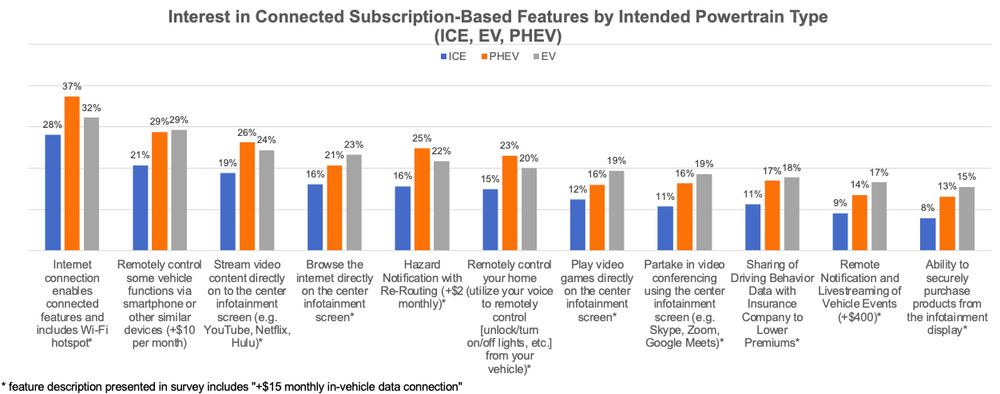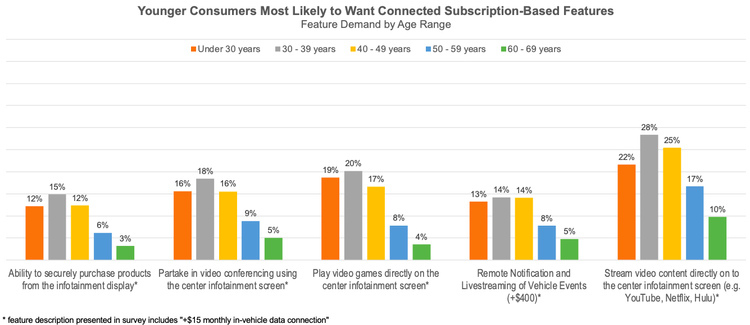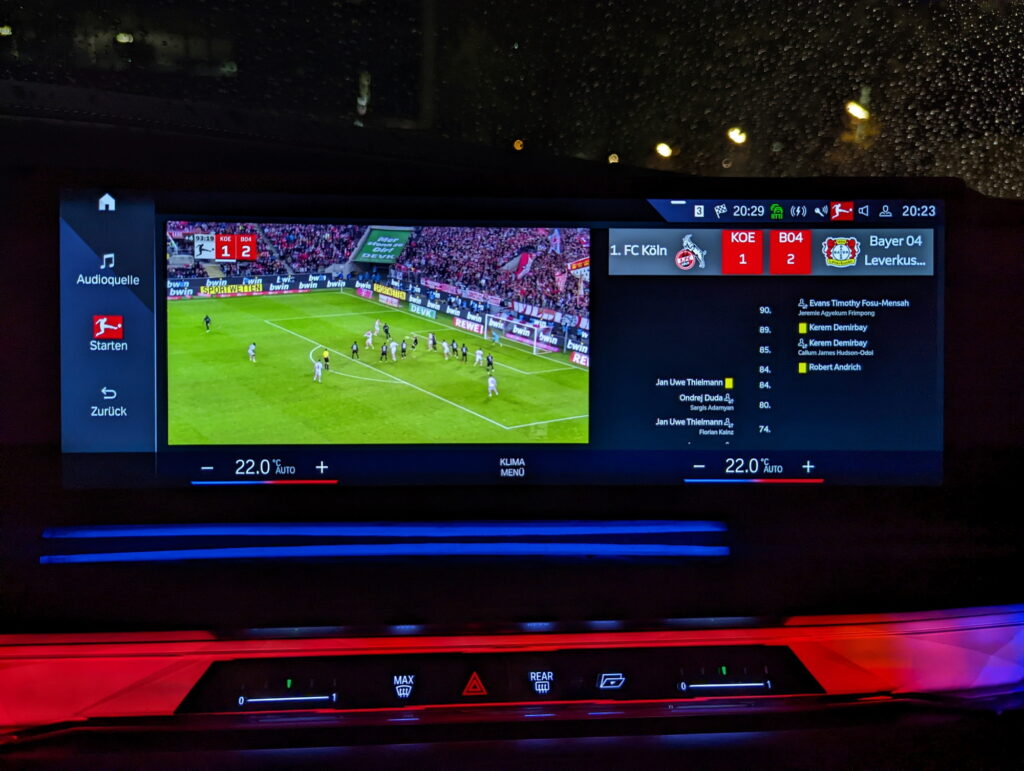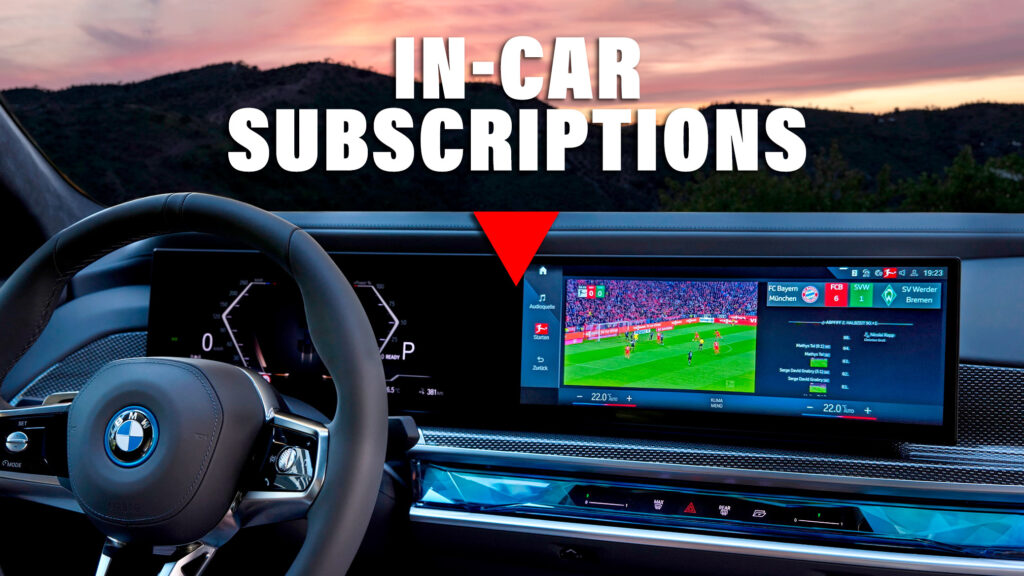It’s easy to understand why automakers are trying to slowly introduce subscription features to their vehicles: money. But consumers remain resistant to the idea, and a new study shows that regardless of age range or vehicle type, few are interested in being forced to pay for the new technology.
AutoPacific‘s latest Future Attribute Demand Study asked people who intend to buy a new car what features they were interested in subscribing to. While EV shoppers were the likeliest to say they were interested in subscription features such as internet access and remote functionality, just 23 percent were interested.
That compares to 21 percent of plug-in hybrid buyers and 16 percent of people interested in a new internal combustion vehicle. That discrepancy could be explained by the greater potential for long periods of downtime in a vehicle caused by the need to charge.
Read: BMW Doubles Down On Paid Subscriptions In The USA, Charges $105 A Year For Remote Engine Start


It may not come as a surprise that 60-69-year-olds were the least likely to want to pay for connected technologies. Just four percent said they would be interested in paying for the ability to play video games on their infotainment screens, for instance.
Somewhat surprisingly, the youngest buyers (those under the age of 30) weren’t the most likely to want to pay for connected features. For that age cohort, just 19 percent of were interested in paying for the ability game. Instead, 30-39-year-olds were the most likely to be willing to pay for features like gaming.
Across all potential technologies that vehicles owners might have to pay for, an internet connection and Wi-Fi hotspot were the features that most appealed to buyers. Still, less than a third of buyers (30 percent) said they would be willing to pay for this amenity.
Meanwhile, features like remotely controlling a vehicle from a smartphone appealed to just 23 percent of buyers, while something like the ability to shop directly from the infotainment system failed to appeal to 90 percent of buyers.





